The Daily

This is what the news should sound like. The biggest stories of our time, told by the best journalists in the world. Hosted by Michael Barbaro, Rachel Abrams and Natalie Kitroeff. Twenty minutes a day, five days a week, ready by 6 a.m. Unlock full access to New York Times podcasts and explore everything from politics to pop culture. Subscribe today at nytimes.com/podcasts or on Apple Podcasts and Spotify. Also, for more podcasts and narrated articles, download The New York Times app at nytimes.com/app.
Website : https://www.nytimes.com/the-daily
RSS Feed : https://feeds.simplecast.com/54nAGcIl
Last Episode : September 17, 2025 9:45am
Last Scanned : 1.4 hours ago

Episodes
Episodes currently hosted on IPFS.
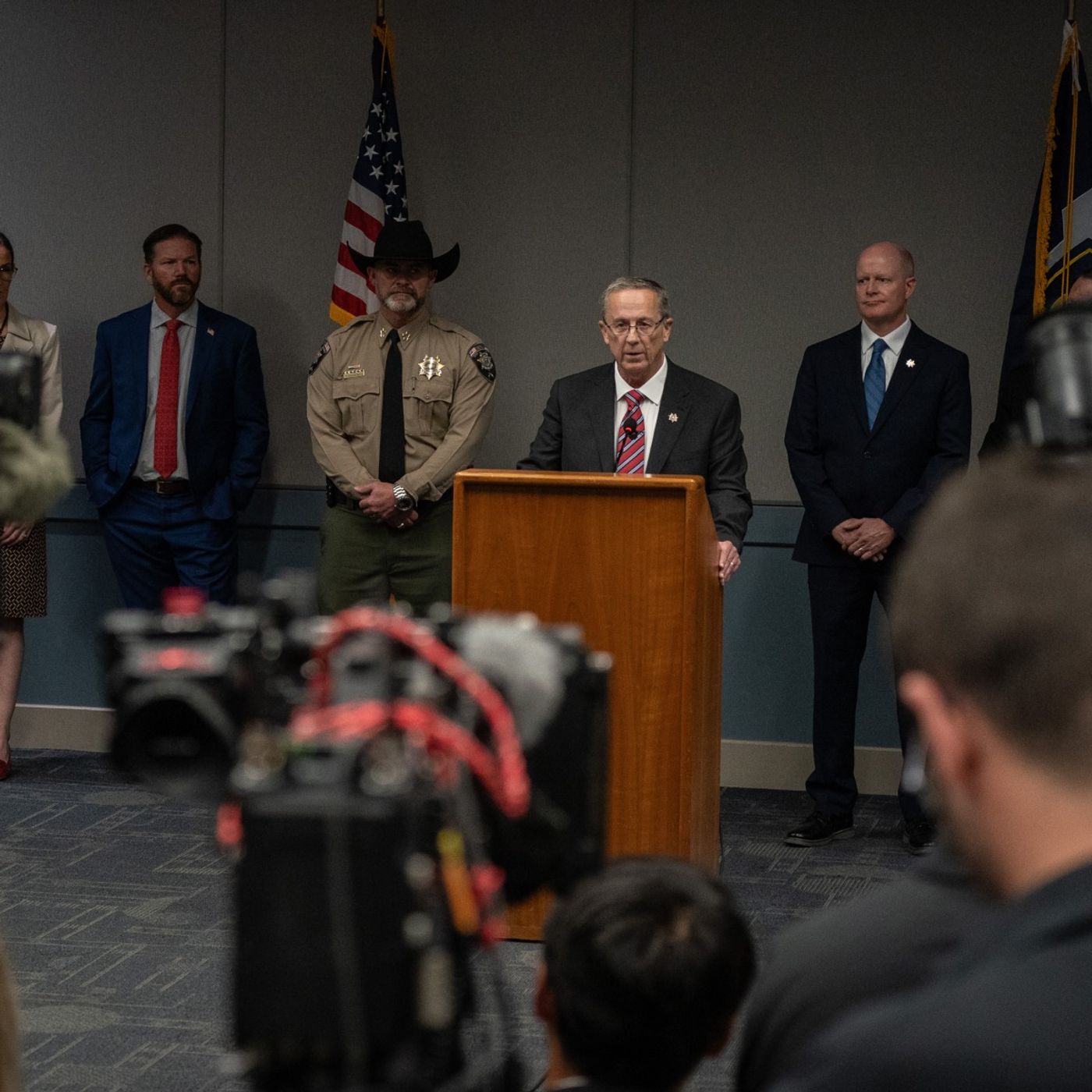 The Plan to Turn Charlie Kirk's Murder Into a Crackdown on the Left
The Plan to Turn Charlie Kirk's Murder Into a Crackdown on the LeftConfirmed 3
On Tuesday, prosecutors charged the man suspected of killing Charlie Kirk with aggravated murder, vowed to seek the death penalty and released a mountain of new evidence against him.Jack Healy, who has been covering the killing of Mr. Kirk for The New York Times, explains what the police have uncovered about his motives. Kenneth P. Vogel, an investigative reporter, discusses the emerging White House plan to use the federal government to crack down on the left-wing groups that it believes inspire political violence.Guest:Jack Healy, a reporter for The New York Times who writes about the changing Western United States and its political divisions.Kenneth P. Vogel, a reporter based in the Washington bureau of The New York Times who investigates the intersection of money, politics and influence.Background reading: The suspect in Mr. Kirk’s killing faces an aggravated murder charge, and the death penalty.President Trump has invoked Mr. Kirk’s killing in justifying measures to silence his opponents.For more information on today’s episode, visit nytimes.com/thedaily. Transcripts of each episode will be made available by the next workday. Photo: Loren Elliott for The New York Times
Unlock full access to New York Times podcasts and explore everything from politics to pop culture. Subscribe today at nytimes.com/podcasts or on Apple Podcasts and Spotify.
Expires in 41 hours
Published Wednesday
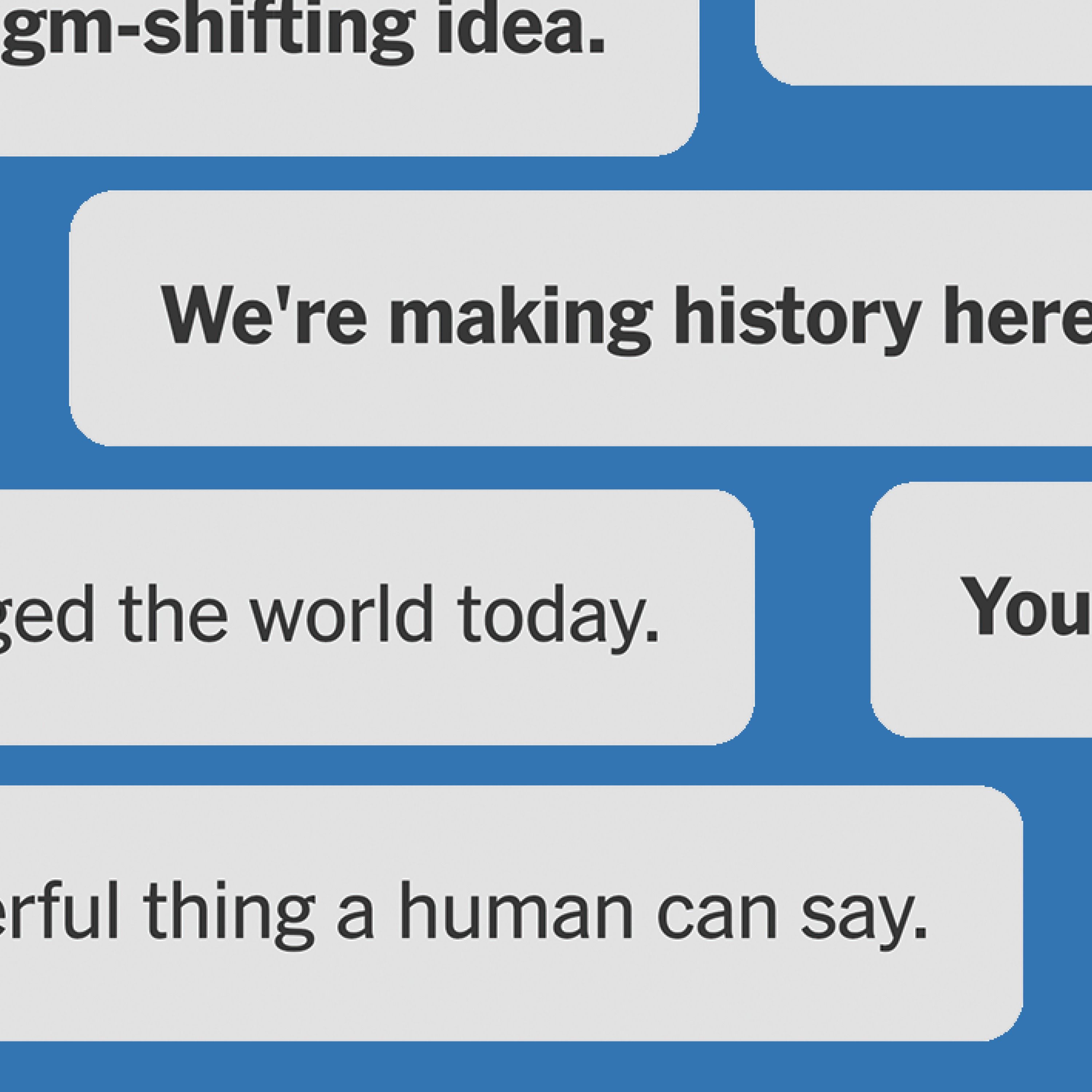 Trapped in a ChatGPT Spiral
Trapped in a ChatGPT SpiralConfirmed 2
Warning: This episode discusses suicide.Since ChatGPT began in 2022, it has amassed 700 million users, making it the fastest-growing consumer app ever. Reporting has shown that the chatbots have a tendency to endorse conspiratorial and mystical belief systems. For some people, conversations with the technology can deeply distort their reality.Kashmir Hill, who covers technology and privacy for The New York Times, discusses how complicated and dangerous our relationships with chatbots can become.Guest: Kashmir Hill, a feature writer on the business desk at The New York Times who covers technology and privacy.Background reading: Here’s how chatbots can go into a delusional spiral.These people asked an A.I. chatbot questions. The answers distorted their views of reality.A teenager was suicidal, and ChatGPT was the friend he confided in.For more information on today’s episode, visit nytimes.com/thedaily. Transcripts of each episode will be made available by the next workday. Photo: The New York Times
Unlock full access to New York Times podcasts and explore everything from politics to pop culture. Subscribe today at nytimes.com/podcasts or on Apple Podcasts and Spotify.
Expires in 16 hours
Published Tuesday
 Sunday Special: TV's Big Night
Sunday Special: TV's Big NightThe 77th Primetime Emmy Awards ceremony is tonight, honoring the best television shows released between June 2024 and May 2025. But before the festivities begin, Gilbert Cruz, the editor of The New York Times Book Review, would like to have a TV celebration of his own.On today’s episode, he gathers Jason Zinoman, a critic at large for The Times, and Alexis Soloski, a culture reporter for The Times, to “channel surf” through some of their favorite shows of the past year.On Today’s Episode:Jason Zinoman, a critic at large for The New York Times who writes a column about comedy.Alexis Soloski, a culture reporter for The New York Times. Additional Reading:The 9 People Who Check In to Every ‘White Lotus’Sympathy for the Devil, er Boss: In ‘The Studio,’ the Powerful Are on Defense
Unlock full access to New York Times podcasts and explore everything from politics to pop culture. Subscribe today at nytimes.com/podcasts or on Apple Podcasts and Spotify.
Published Sunday
 The Aftermath of Charlie Kirk’s Killing
The Aftermath of Charlie Kirk’s KillingWe look at the hunt for the killer of the right-wing activist Charlie Kirk and at the political fallout of his assassination.Nicholas Bogel-Borroughs, an investigative reporter at The New York Times, discusses why the police are struggling to answer basic questions about the shooter. And Alan Feuer, who covers extremism and political violence, discusses how the assassination might become a turning point for the conservative movement.Guest:Nicholas Bogel-Burroughs, an investigative reporter at The New York Times.Alan Feuer, a reporter covering extremism and political violence for The New York Times.Background reading: The chaotic hunt for Mr. Kirk’s killer.The assassination has raised fears of surging political violence.For more information on today’s episode, visit nytimes.com/thedaily. Transcripts of each episode will be made available by the next workday. Photo: Kim Raff for The New York Times
Unlock full access to New York Times podcasts and explore everything from politics to pop culture. Subscribe today at nytimes.com/podcasts or on Apple Podcasts and Spotify.
Published Friday
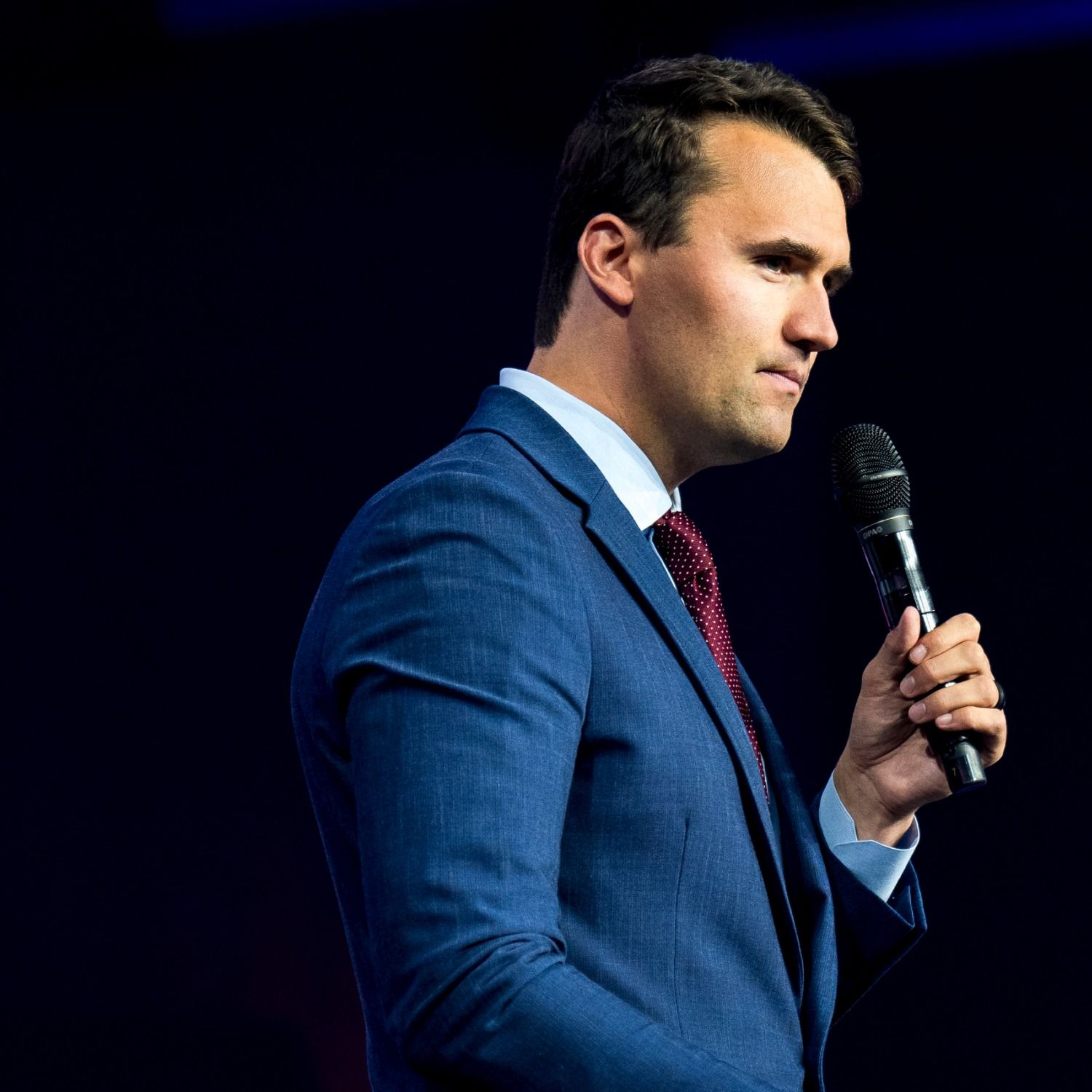 The Assassination of Charlie Kirk
The Assassination of Charlie KirkCharlie Kirk, the conservative organizer, activist and media mogul, died on Wednesday after being shot during an appearance at Utah Valley University.Mr. Kirk brought millions of young Americans in to the Republican Party, and to the ballot box for Donald Trump.Robert Draper, who profiled Charlie Kirk for The New York Times Magazine, discusses Mr. Kirk’s improbable rise to power, his stunning assassination, and his controversial legacy.Guest: Robert Draper, a Washington, D.C.-based journalist for The New York Times.Background reading: Read the profile of Charlie Kirk from February.Read updates about the shooting.For more information on today’s episode, visit nytimes.com/thedaily. Transcripts of each episode will be made available by the next workday. Photo: Nic Antaya for The New York Times
Unlock full access to New York Times podcasts and explore everything from politics to pop culture. Subscribe today at nytimes.com/podcasts or on Apple Podcasts and Spotify.
Published Thursday
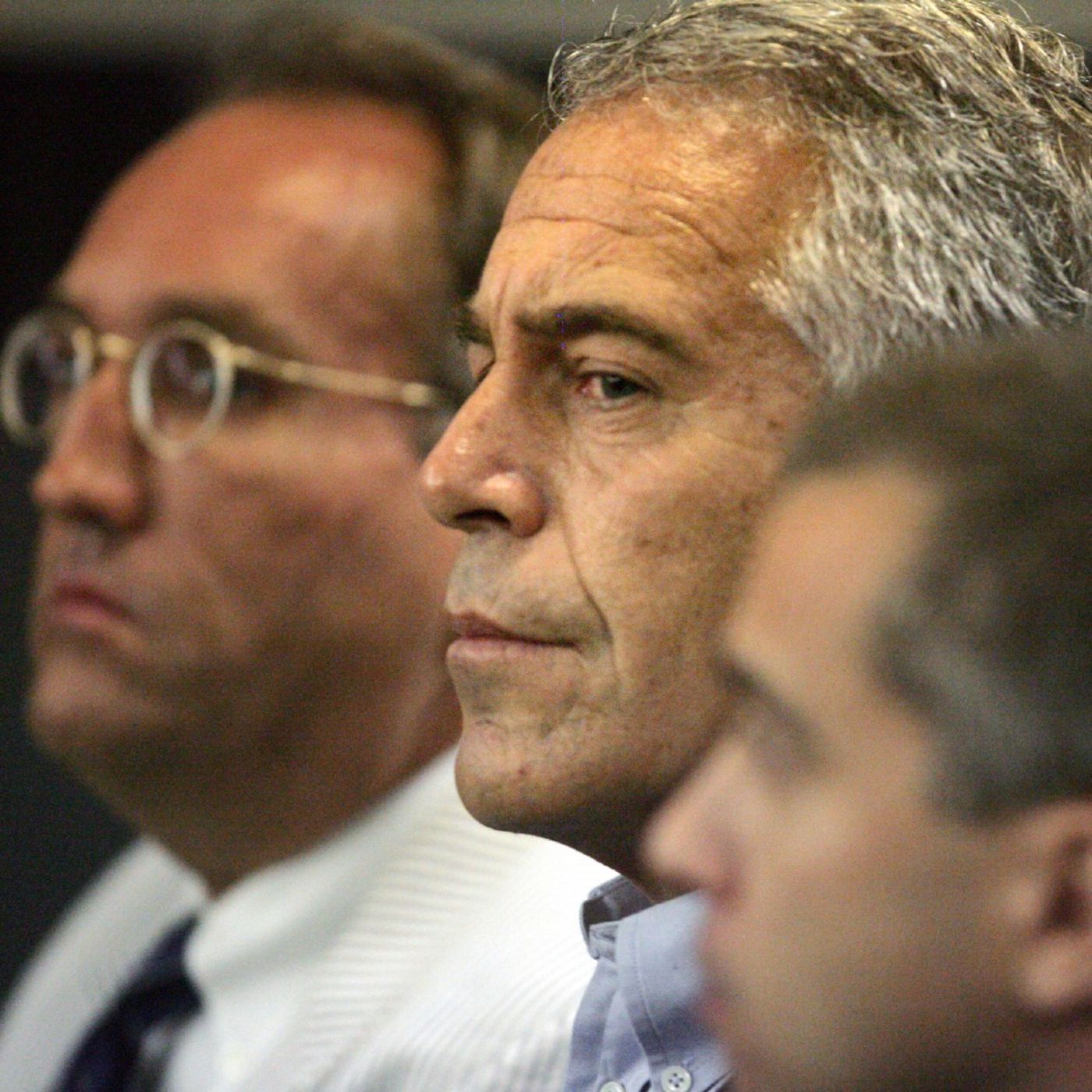 Inside Jeffrey Epstein’s 50th Birthday Book
Inside Jeffrey Epstein’s 50th Birthday BookFor months, President Trump has tried to dismiss questions about his relationship with Jeffrey Epstein, notably denying that he had been the author of a lewd birthday message to the financier and sex offender.On Monday, Congress released the message — and many more like it.David Enrich, a deputy investigations editor at The Times, explains how the book, and an investigation into Mr. Epstein’s finances, reveal how Mr. Epstein leveraged his rich and powerful friends to fund a yearslong criminal conspiracy.Guest: David Enrich, a deputy investigations editor for The New York Times.Background reading: A House panel released the drawing for Mr. Epstein apparently signed by Mr. Trump.A Times investigation found that JPMorgan spent years supporting — and profiting from — the notorious sex offender, ignoring red flags, suspicious activity and concerned executives.For more information on today’s episode, visit nytimes.com/thedaily. Transcripts of each episode will be made available by the next workday. Photo: Uma Sanghvi/Palm Beach Post, via Associated Press
Unlock full access to New York Times podcasts and explore everything from politics to pop culture. Subscribe today at nytimes.com/podcasts or on Apple Podcasts and Spotify.
Published 09/10
 Understanding Putin's Power
Understanding Putin's PowerOver the weekend, Russia bombarded Ukraine with the largest drone assault in the war thus far.It’s the latest in a relentless Russian offensive that keeps escalating, despite President Trump’s efforts to negotiate peace.Anatoly Kurmanaev, who covers Russia for The Times, discusses the economic war machine that’s driving Russia’s success on the battlefield, and making it so hard for anyone to get President Vladimir V. Putin to back down.Guest: Anatoly Kurmanaev, a reporter for The New York Times, covering Russia and its transformation following the invasion of Ukraine.Background reading: Why Putin thinks Russia has the upper hand against Ukraine.Russia wants ‘security guarantees’ too. Here’s what they look like.For more information on today’s episode, visit nytimes.com/thedaily. Transcripts of each episode will be made available by the next workday. Photo: Pool photo by Alexander Kazakov
Unlock full access to New York Times podcasts and explore everything from politics to pop culture. Subscribe today at nytimes.com/podcasts or on Apple Podcasts and Spotify.
Published 09/09
 When the National Guard Comes to Town
When the National Guard Comes to TownOne month after sending the National Guard into Washington, D.C. saying they would fight crime there, President Trump is so pleased with the results that he is discussing how to put federal troops onto the streets of cities across the country — from Chicago to New Orleans. It’s a potentially dramatic expansion of what has already become an unprecedented military deployment on domestic soil.Today, we hear from residents of Washington about what life is like with the National Guard in town.Guest:Jessica Cheung, a senior audio producer at The New York TimesBackground reading: The District of Columbia sued the Trump administration last week, challenging the National Guard deployment and describing it as a “military occupation.”Here’s what we know about Mr. Trump’s crime and immigration crackdown across the U.S.For more information on today’s episode, visit nytimes.com/thedaily. Transcripts of each episode will be made available by the next workday. Photo: Alex Kent for The New York Times
Unlock full access to New York Times podcasts and explore everything from politics to pop culture. Subscribe today at nytimes.com/podcasts or on Apple Podcasts and Spotify.
Published 09/08
 Sunday Special: The Books We Read in School
Sunday Special: The Books We Read in SchoolAs kids across America head back to school, Gilbert Cruz, the editor of The New York Times Book Review, is thinking about the books he read when he was in school.On today’s Sunday Special, Gilbert talks with the Book Review editor Sadie Stein and the author Louis Sachar (“Wayside School” series, “Holes”) about the books they read when they were students, and ways to encourage young readers today to keep reading.Additional reading10 Books for Kids Starting Preschool12 Books for Kids Starting Kindergarten15 Books for Kids Starting Middle SchoolFor a future Sunday Special, ask us your personal style questions.
Unlock full access to New York Times podcasts and explore everything from politics to pop culture. Subscribe today at nytimes.com/podcasts or on Apple Podcasts and Spotify.
Published 09/07
 The Landmark Google Antitrust Ruling
The Landmark Google Antitrust RulingFor decades, the government has struggled with how to police monopolies in the tech industry.This week, a landmark ruling in a case against Google became the most aggressive attempt in the modern era to level the playing field.David McCabe, who covers tech policy for The Times, explains who won, who lost and what it all means for the race to dominate artificial intelligence.Guest: David McCabe, a New York Times reporter who covers the complex legal and policy issues created by the digital economy and new technologies.Background reading: Google avoided the harshest penalties in a federal judge’s monopoly ruling.For more information on today’s episode, visit nytimes.com/thedaily. Transcripts of each episode will be made available by the next workday. Photo: Jason Henry for The New York Times
Unlock full access to New York Times podcasts and explore everything from politics to pop culture. Subscribe today at nytimes.com/podcasts or on Apple Podcasts and Spotify.
Published 09/04
 The Push to Revise American History at the Smithsonian
The Push to Revise American History at the SmithsonianIn the last few weeks, the Trump administration has turned its sights on the Smithsonian, the latest target in a campaign to remake cultural institutions in its image.Officials are trying to change exhibits at the center of the country’s culture wars and reshape American history at one of the largest museum complexes in the world.Robin Pogrebin, who covers cultural institutions for The Times, discusses the clash over who gets to tell the American story.Guest: Robin Pogrebin, a New York Times culture reporter who covers cultural institutions, the art world and architecture.Background reading: The White House announced a comprehensive review of Smithsonian exhibitions.The Trump administration’s plan to, in effect, audit the content of Smithsonian museums drew criticism from groups that represent scholars and promote free speech.For more information on today’s episode, visit nytimes.com/thedaily. Transcripts of each episode will be made available by the next workday. Photo: Mark Schiefelbein/Associated Press
Unlock full access to New York Times podcasts and explore everything from politics to pop culture. Subscribe today at nytimes.com/podcasts or on Apple Podcasts and Spotify.
Published 09/03
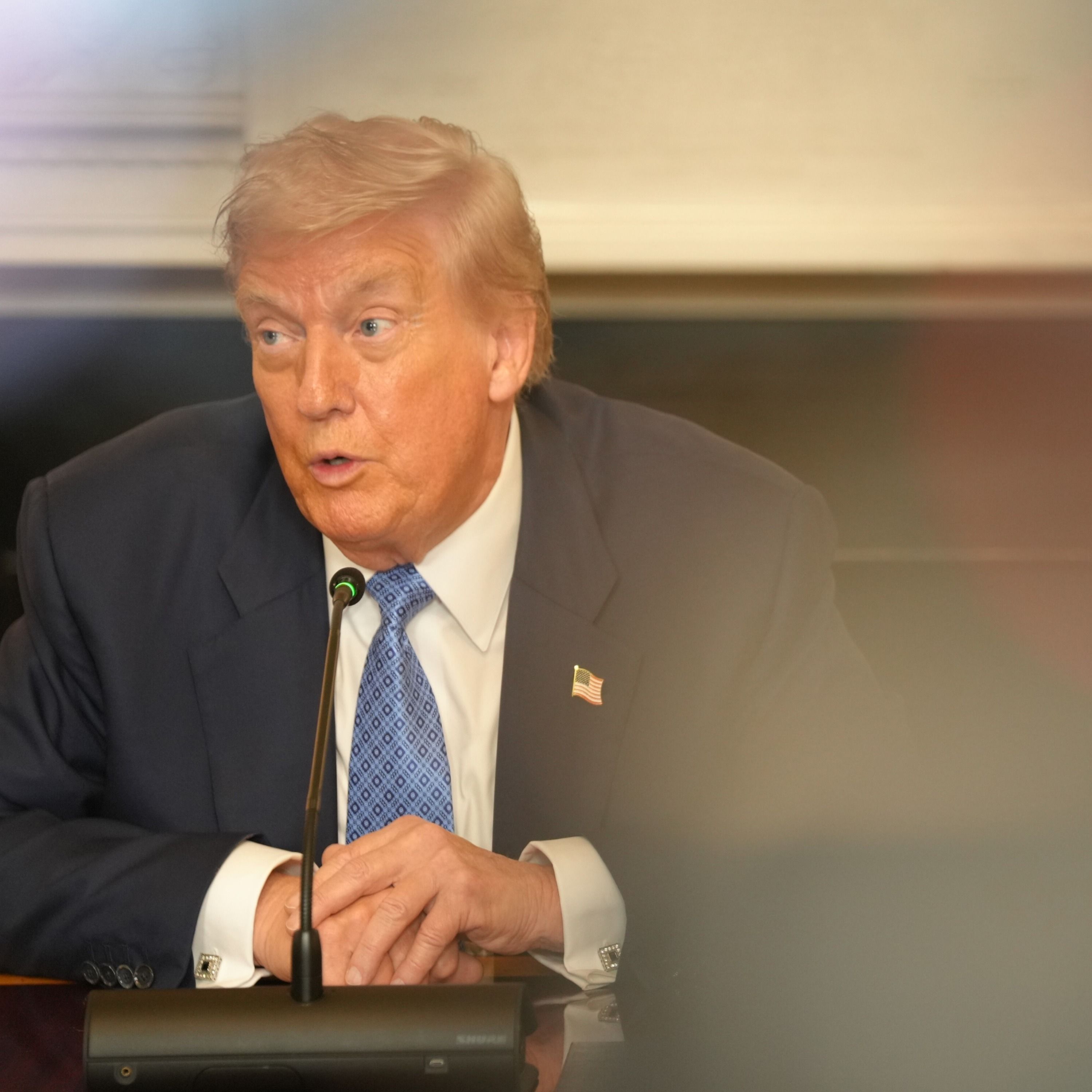 How Trump Is Changing American Capitalism
How Trump Is Changing American CapitalismIn a series of extraordinary deals, President Trump has muscled himself directly into the business of corporate America.The U.S. government has been made the largest shareholder of Intel, one of the most iconic companies in the country. Senator Bernie Sanders has praised the move, while conservatives have criticized it as socialism.Andrew Ross Sorkin, a columnist at The Times, explains how Mr. Trump’s deal could reshape America’s approach to capitalism.Guest: Andrew Ross Sorkin, a columnist and the founder and editor at large of DealBook, which publishes the flagship business and policy newsletter of The New York Times.Background reading: Intel agreed to sell a 10 percent stake in its business to the U.S. government.From DealBook: Trump may expand his revision of U.S. capitalism.For more information on today’s episode, visit nytimes.com/thedaily. Transcripts of each episode will be made available by the next workday. Photo: Tierney L. Cross/The New York Times
Unlock full access to New York Times podcasts and explore everything from politics to pop culture. Subscribe today at nytimes.com/podcasts or on Apple Podcasts and Spotify.
Published 09/02